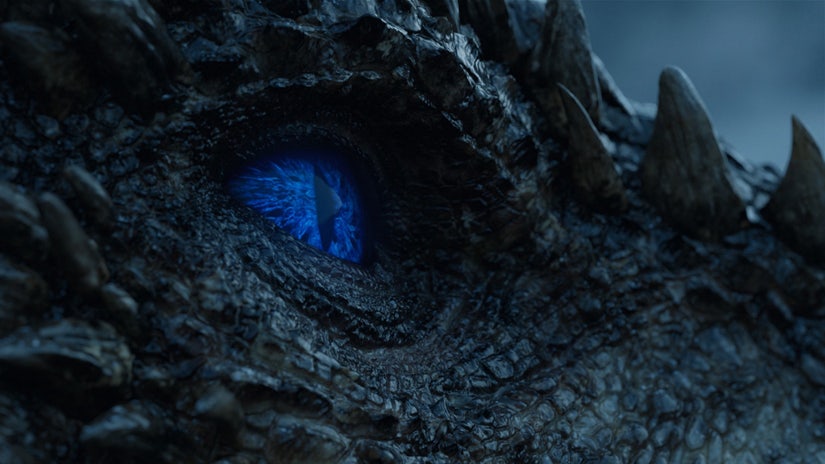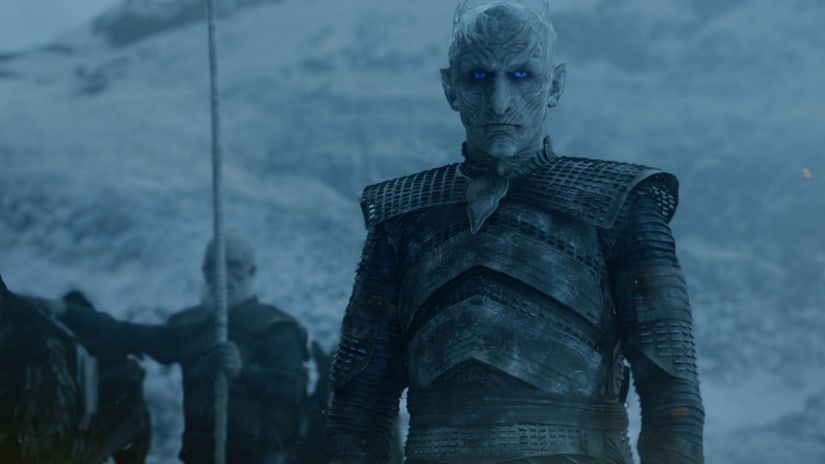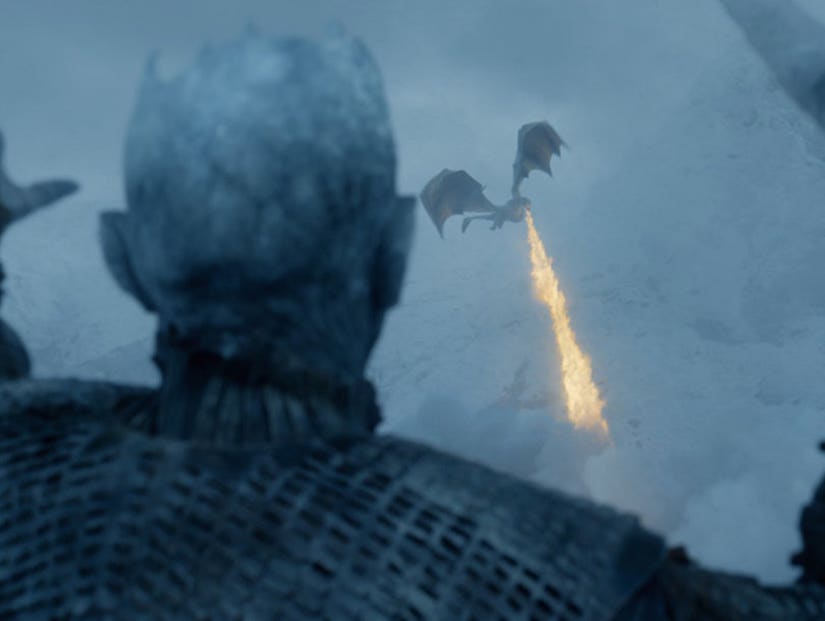Sunday night's "Game of Thrones" was brutal and heartbreaking, and it makes things a lot more difficult for the side of good in the coming war against the Night King, his White Walkers and their army of wights. But it also might have solidified a prophecy of sorts from the second season wherein Daenerys was told "the dragon has three heads." This led to speculation that three dragons would equal three riders, with Tyrion and Jon the likely candidates. Until this episode, that is.
Thanks to Tyrion's hare-brained scheme to bring back a wight as proof that the White Walkers were real, Jon Snow and Friends found themselves trapped and surrounded by enemy forces on a frozen lake. Jon was beaten and screwed and it looked a lot like the Battle of the Bastards. Once again, Jon Snow gets in over his head and needs someone to bail him out. This time, it was a timely raven to Dragonstone that brought Daenerys Targaryen and her three dragons north of the wall by early the following day.
 HBO
HBO
When the Night King takes down Viserion with an ice spear and turns his eyes blue, a long-gestating theory was challenged that would have seen Daenerys reclaiming the Iron Throne alongside two other dragon riders in Jon Snow and perhaps Tyrion Lannister. But this actually makes even more sense.
"A Song of Ice and Fire" is the name of the book series, and Dany is clearly the fire, while the Night King is ice. The Starks also represent ice, and with Jon's strongly suggested lineage from both the Targaryen and Stark lines, he would represent the combined fire and ice … the lynchpin of the whole thing.
By claiming Viserion as an ice dragon … the existence of which was suggested several times in the books .. the leadership of the two sides is more evenly matched and definitively set. Rhaegal and Jon Snow are the outsiders of the trinity, but no less important as they may represent the "swing vote" as it were, siding with Dany.
A wild card remains Bran Stark, who may have the ability to warg into Viserion, or another dragon. Simpler minds are easier for him to control, and an undead dragon would be a simple mind indeed, as witnessed by the relative stupidity of the wights, but therein remains a problem with the Night King. He had no problem sensing Bran in the birds he sent north, nor did have have trouble throwing Bran out of those animals. His mental game is on point.
 HBO
HBO
Another wild theory, though, involving Bran is that he may well be the Night King himself through some weird timey-wimey time travel stuff. After all, it was Bran and Meera who broke poor Hodor's ("Hold the door!") mind in the past when he was meddling with time travel before. The abilities of the three-eyed raven remain largely unknown, but it's within the realm of possibility.
If that somehow came to pass, or the Night King were a Stark by his own right many centuries in the past, then the representation of Stark as ice would be solidified, further pushing Jon Snow into the center of the whole saga as the embodiment of both by blood and lineage. Perhaps he is the key to defeating the Night King, and in doing so wiping out his army.
That was, perhaps, the only good news to come out of the episode. Jon's "suicide squad" team beyond the wall discovered that killing a White Walker appears to also kill every wight that was turned by that White Walker -- a fairly common vampire rule in many stories -- which means killing the Night King mightjust take down the entire army in one swoop. It would definitely be a way to take out Viserion.
Better start mining that dragon glass 24/7!
"Game of Thrones" super-sized seventh season finale airs Sunday at 8 p.m. ET on HBO.





















